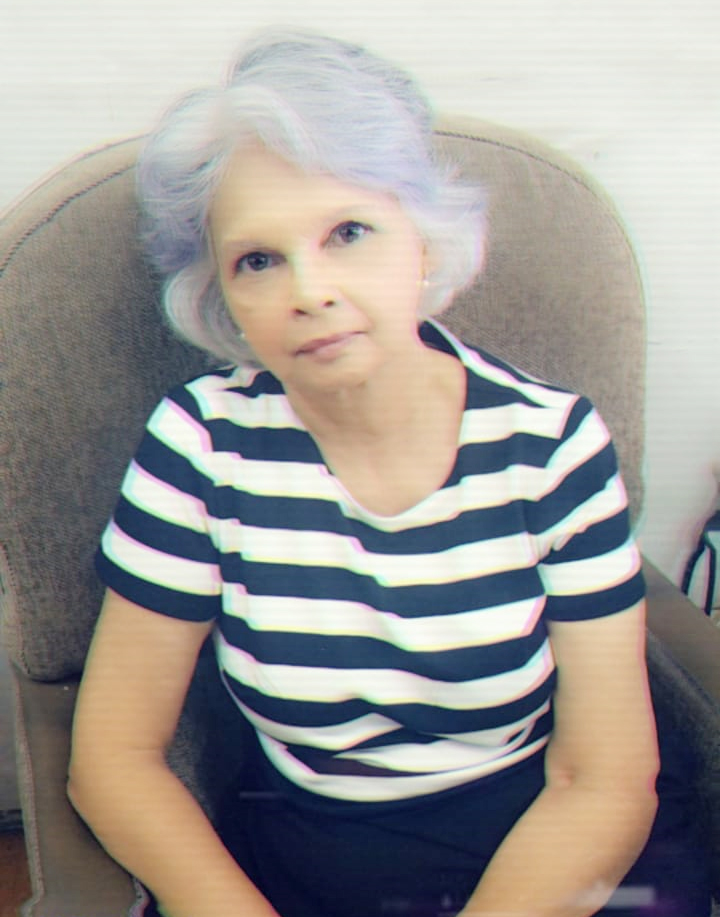Ryhaan Shah, who has worked as a journalist in print and television, has had three novels published in the United Kingdom. Her first novel, A Silent Life, won the Guyana Prize for Literature’s “Best First Book” award in 2005. She is currently working on a collection of poetry, some of which she says is inspired by current events.
TWR: Upon a reading of “Sweet Veins of Greed”, it is tempting to ask: Do you really believe that oil has already doomed us?
RS: We doom ourselves. The political mismanagement of our country since independence does not inspire much hope that much will change. The racial/ethnic divide is our downfall and there is still no leadership willing or capable of confronting the issue and coming up with solutions that could well involve a shared governance structure. This little poem that I wrote sums up my pessimism:
This Dubious Inheritance
This dubious inheritance
Blood and terror
Cracked by an evil whip
That reaches still
And mocks all freedom
Stills all thought
And chains us each to each
As we all go down
To drown
This then is our unity
A unity in death
TWR: You suggest a betrayal has taken place and it’s largely rooted in our “well-remembered” history — as a former colony that exploited the labour of slaves and indentured immigrants to develop and sustain the sugar industry — which doesn’t serve as enough reason for us to resist the “sweetened deals” now being offered. But I am also struck by your use of the word “we.” Are you also suggesting a societal complicity? Are we all to blame?
RS: From all my reading of how Big Oil operates with frontier countries like ours and from all the questions being raised locally about the ongoing operations, I have a healthy scepticism – even distrust – about the deals being made and whether Guyana is really going to see much benefits. We are all to blame in as much we go to the polls and elect the same tired old politicians to govern. However, I see no people’s revolution happening here or any statesman rising to capture our imagination so we’re stuck with what we have. I have no answers of how we escape this. I can only question and comment.
TWR: Notwithstanding vocal concerns surrounding the country’s preparations for the oil and gas sector, there are also those both in and out of government who think that a lot of the alarm is being driven by misinformation? How do you view that assertion?
RS: I have my scepticism and am prepared to be pleasantly surprised.
TWR: Can you share how your career—if you would use that word—as a writer began?
RS: I always had some talent at writing. At age nine in primary school, my first ever poem “My Pet” was considered so good that I had to go to the front of the class and read it. In high school, Corentyne High School, my English Language teacher Mr Edmund Carpen encouraged my flair with words and at GCE “A” Level English, my VSO teacher Miss Anne Thomas at St Joseph Mercy High School also saw something in my writing and told me I must continue to develop my style. The idea of writing was there from early on.
TWR: You have had a history in journalism, business and also as a writer of prose. What purpose does it serve for you now?
RS: Perhaps, turning to poetry was a natural progression. It keeps me sane to express emotions and feelings in a place where I often wonder about the level of civilisation and sanity. I lived abroad from 1976 to 1997 in the US, Britain and Grand Cayman. Those were peaceful years. I returned home and have since had my handbag snatched twice, had plants stolen from my garden (gave up on that idea), have been carjacked with a gun held to my head, and soon after my return in October 1997 experienced the post elections protests and violence in our city streets. The recent road carnage is another symptom of what I view as a society where there is no accountability, responsibility, or consequences. This occurs from the very top down and nothing is ever done to change anything.
TWR: Is there any great difference for you between writing poetry and prose? I ask because I have this belief that poetry is in some ways more participatory than prose insofar as it leaves room for interpretation, and admittedly misinterpretation, which might be frustrating for some writers.
RS: Poetry requires a higher level of intensity of emotional input since you’re expressing perhaps complex ideas and feelings in few words. In a way I guess I am challenging myself. I don’t know that I am concerned about misinterpretation. It is whatever the reader gets from his or her reading since each person will also bring their own experiences and feelings and will therefore have different responses.
TWR: Apart from oil, what are some of the other current events that have been inspiring your poetry?
I have been catching up, so to speak, and have written some poetry about Indian indentureship and the Indian Arrival Monument and whatever else catches my fancy. A few of them are just brief expressions of whimsy, such as:
Me in the World
Me in the world
The world in me
Pure light
An invisible thread
Spanning my beginning
And my end
TWR: Lastly, can you share any details about your planned collection, such as when you’re aiming for the release, that is, assuming that you’re going the same route as with your novels, where you worked with a publisher?
I don’t have any plans for a publication just yet. I am just writing for my own pleasure and satisfaction. Perhaps when I have a good number I might consider having them published. Right now, I share them with a few friends.
Recommended Reads
People who enjoy reading will find the stories and authors they like best. For [me], as I get older, I find myself returning to the classics I grew up reading. They are like old friends especially everything by the Brontë sisters and by Jane Austen. I just saw the latest movie version of “Little Women” directed by Greta Gerwig and I want to read this classic again with Gerwig’s high-energy and edgy adaptation in mind. I think it will bring a new perspective to a classic book.
– Ryhaan Shah










